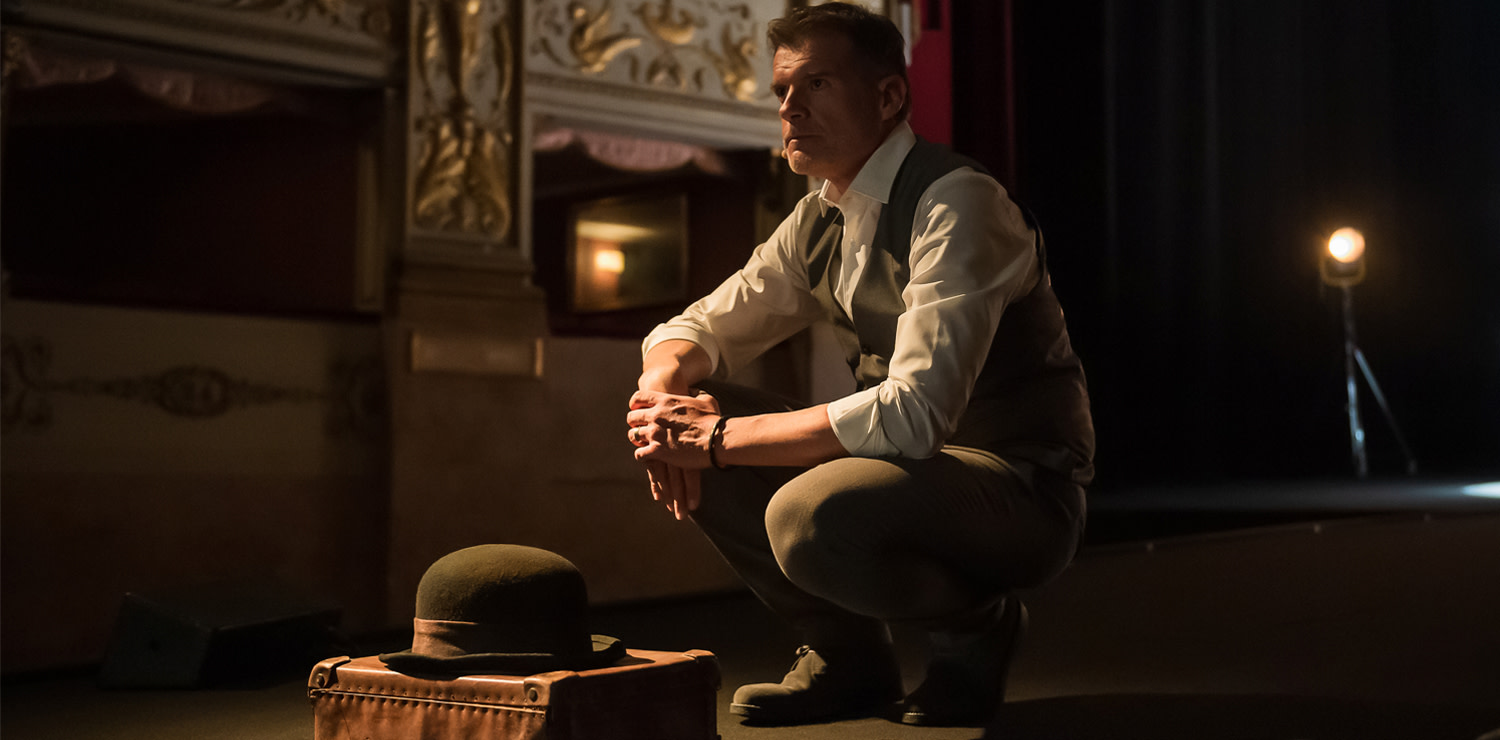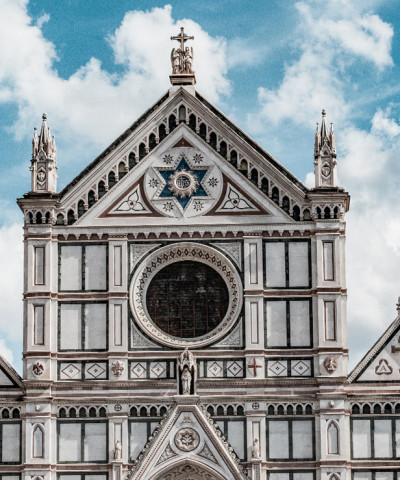Our interview with Stefano Massini
The great Florentine-born playwright tells his story from his beginnings as an actor to winning the Tony Award on Broadway
We republish our interview - conducted for the cover story of Firenze made in Tuscany magazine 64 - with Stefano Massini, appointed artistic director of the Teatro della Toscana.
“Those who live in Florence, live immersed in a tremendous amount of art and history. Every character portrayed, every painting or sculpture is a story, even if in the form of images and not words. I believe it is impossible not to be influenced by these stories, which get under our skin inadvertently”.
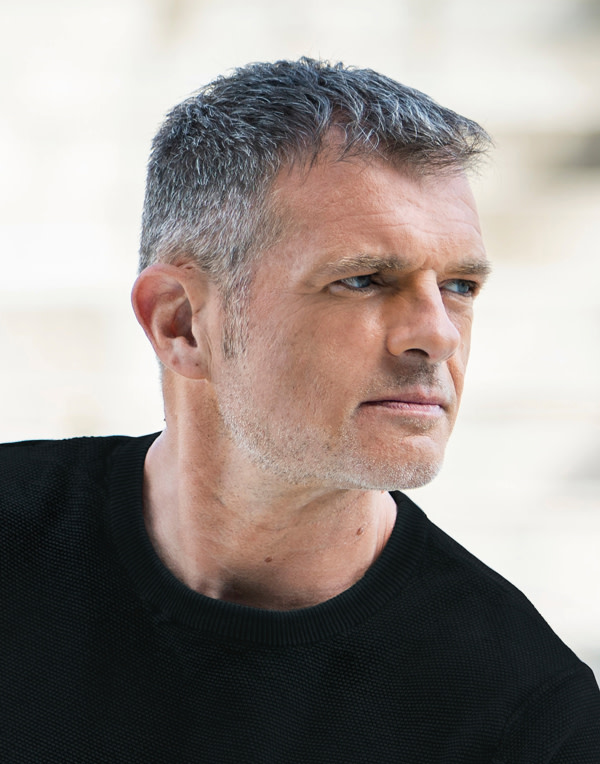 Stefano Massini (Florence, 22 September 1975) is a great writer and playwright, the first Italian playwright to have won a Tony Award. He is also a very popular TV and theater storyteller (ph. Marco Borrelli)
Stefano Massini (Florence, 22 September 1975) is a great writer and playwright, the first Italian playwright to have won a Tony Award. He is also a very popular TV and theater storyteller (ph. Marco Borrelli)Stefano Massini is one of the most celebrated playwrights on the international scene, as well as a writer and storyteller in shows such as Piazzapulita on La7 channel and Ricomincio da RaiTre, which have a great audience and devoted fans, including many young people. Born and raised in Florence, he began writing plays following his enlightening encounter with director Luca Ronconi. His plays and books have been translated and staged across the world, from the United States to Africa, from France to Japan. With the Lehman Trilogy- a family saga and the story of one hundred and sixty years of capitalism, the play directed by Luca Ronconi and staged all over the world ( even by Academy Award-winner Sam Mendes)- Massini was the first Italian ever to be awarded the Tony Award ( the Academy Award of American Theater) on June 12 in New York, at Broadway’s City Music Hall, broadcast live by CBS before an audience of 45 million people.
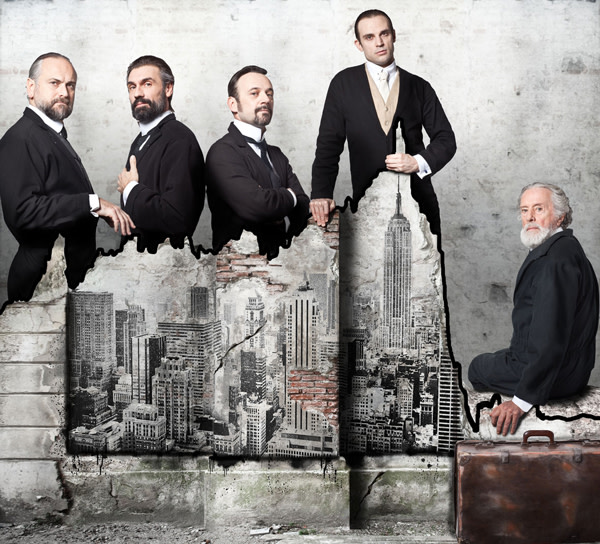 The first staging of 'Lehman Trilogy' directed by Luca Ronconi (ph. Luigi Laselva)
The first staging of 'Lehman Trilogy' directed by Luca Ronconi (ph. Luigi Laselva)How and when has the theater become a part of your life?
I have always hoped for a future in the theater, but knowing that it would have been a troubled and complex path, I soon made a backup plan: teaching. And I even did it for a short time, I taught Latin and ancient Greek at high school. I began working in the theater as an actor, but I would have never ever imagined that one day I would write. Then, in 2000, something happened and everything changed. I worked as assistant director to Luca Ronconi at Milan’s Piccolo Teatro. I loved the wonderful world of direction, but when Ronconi encouraged me to pursue writing- for he had read the notes I wrote for him- that was the turning point, although it took some time before I considered writing as my main activity. One day, after years of working as director on other people’s texts, I summoned up my courage and I sent a text I had written, L’odore assordante del bianco, to Premio Riccione. I was awarded Italy’s most important prize for playwriting, Premio Pier Vittorio Tondelli. It was the year 2005. That day I found my center of gravity in playwriting and the turning point in my career.
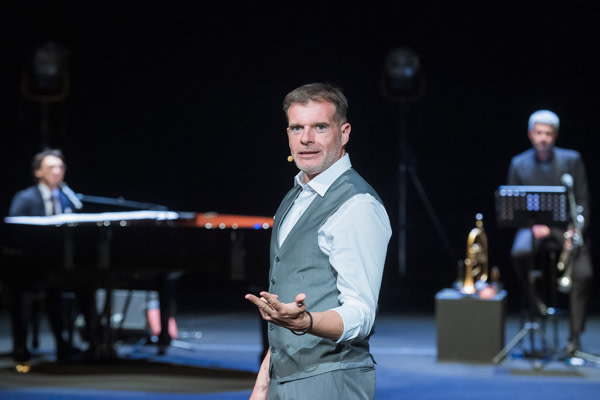 Stefano Massini in 'Storie' at the Teatro della Pergola (ph. Filippo Manzini)
Stefano Massini in 'Storie' at the Teatro della Pergola (ph. Filippo Manzini)What is the greatest lesson you learned from Ronconi?
‘Every time you do something, ask yourself what people expect from that thing and do exactly the opposite’. This is the most drastic lesson and the one dearest to me.
What is your relationship with Florence?
My family lives in Florence, I live in the green ring surrounding the city center. Florence is the city where I studied, where I debuted as an actor, but my most important experiences and first recognitions came later from abroad.
Has Florence ever inspired you for your novels or theatrical works?
I have always written stories set abroad. I enjoy the relationship between the places and the world and, in order to find cross-references between my works and Florence, one must go searching for them in the folds of the stories I tell. For instance, the story of the international Lehman bank: Florence’s fortune is tied to the banks and the first great bankers in history, the Peruzzi and Bardi families. In short, I believe it is no accident that a Florentine told the story of a foreign bank, even if not the bank of his hometown. And then there is Florence’s art. Masaccio and Brunelleschi are there in my works.
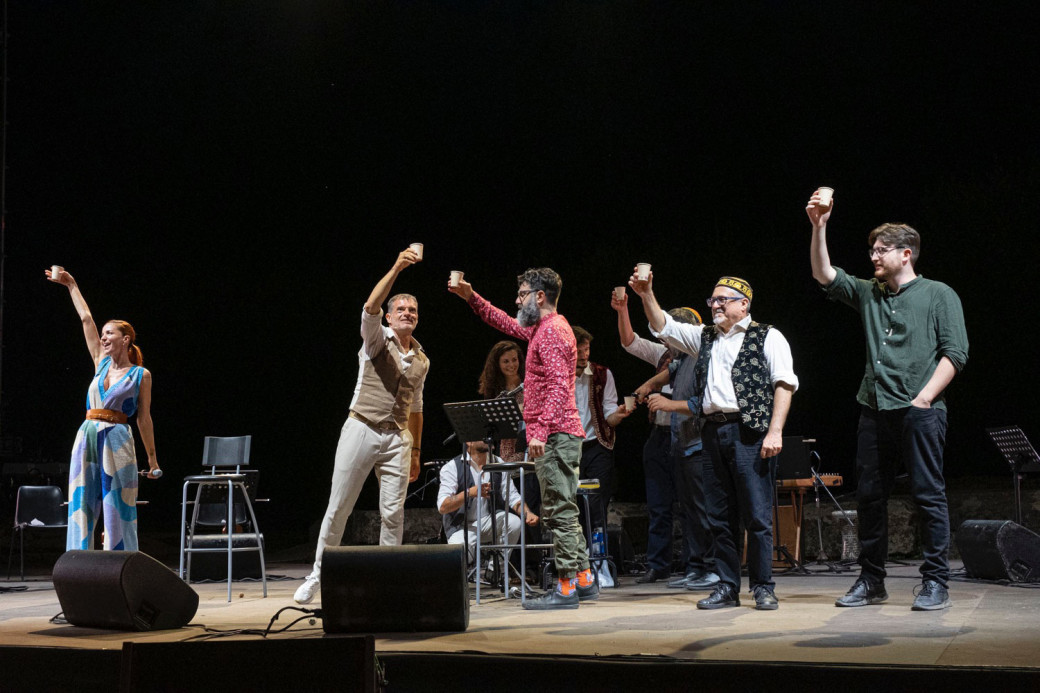 Stefano celebrates winning the Tony Award, during one of his performances on 17 July 2022 surrounded by the affection of the audience at the Roman theatre in Fiesole (ph. Marco Borrelli)
Stefano celebrates winning the Tony Award, during one of his performances on 17 July 2022 surrounded by the affection of the audience at the Roman theatre in Fiesole (ph. Marco Borrelli)In December, we will be seeing you in your new play on The Interpretation of Dreams at Teatro della Pergola.
A great adventure in which I have poured every ounce of my entire being. Each of us has a number of works which form the basis on which we build our vision of the world and of reality. For me, one of these works is The Interpretation of Dreams by Sigmund Freud. A fundamental text which changed the twentieth century, in its reality and with reality. Working on this book and being able to perform it live on stage is going to be a very intense experience.
Your next big writing project?
An extensive text, just the way I like it, devoted to the history of the atom bomb which will be soon released, I believe firstly abroad and then in Italy. It is called Manhattan Project and it’s the story of how the United States got to the final decision to drop the atom bomb on Hiroshima and Nagasaki.






